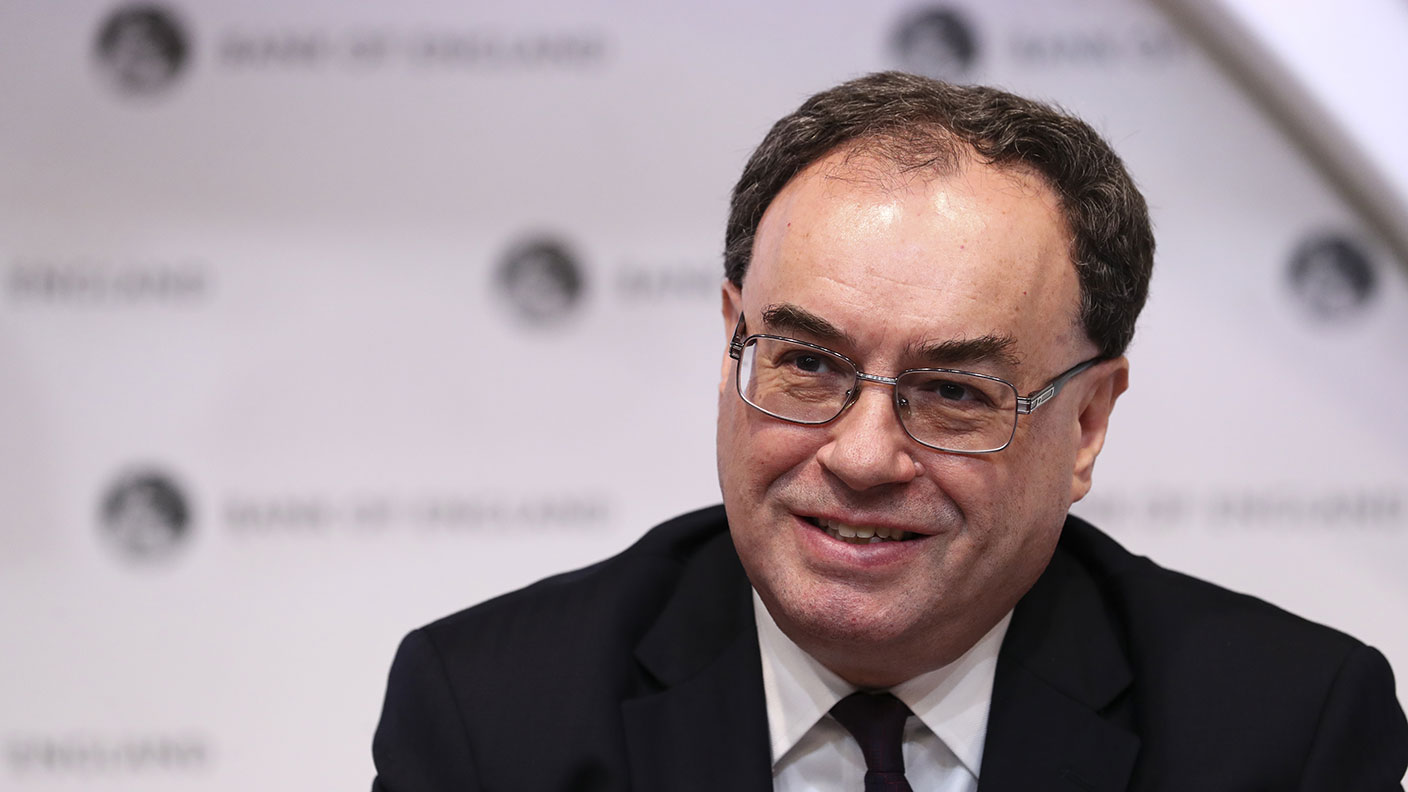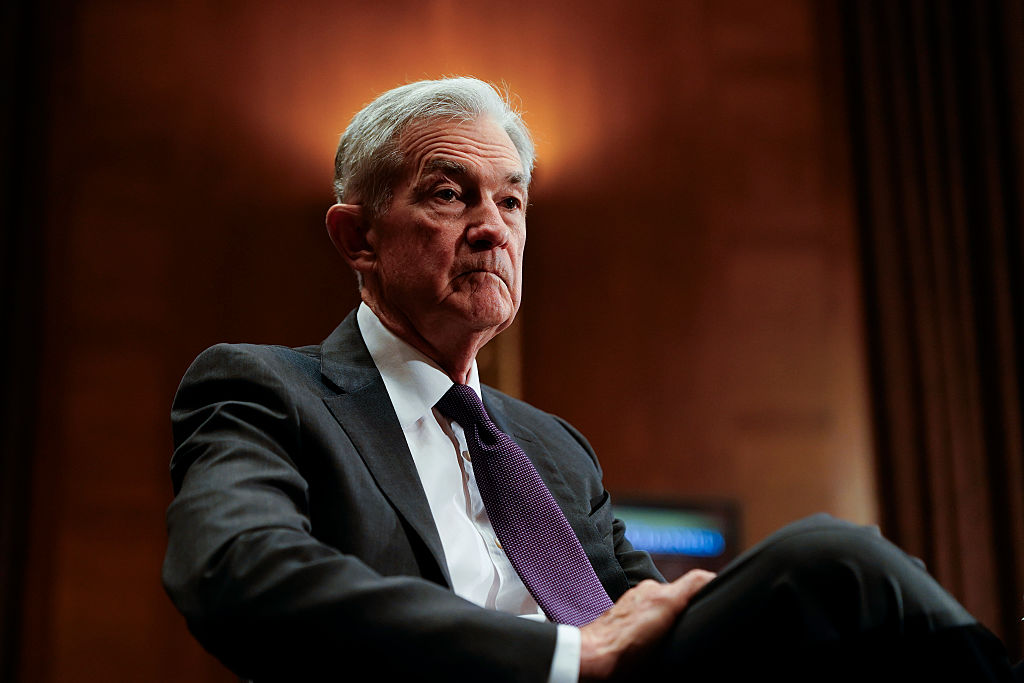The Bank of England is keen to raise interest rates – what does that mean for you?
The Bank of England is considering raising interest rates again following a decade of interest rate cuts. John Stepek explains what this means for you and your money.


Get the latest financial news, insights and expert analysis from our award-winning MoneyWeek team, to help you understand what really matters when it comes to your finances.
You are now subscribed
Your newsletter sign-up was successful
Want to add more newsletters?

Twice daily
MoneyWeek
Get the latest financial news, insights and expert analysis from our award-winning MoneyWeek team, to help you understand what really matters when it comes to your finances.

Four times a week
Look After My Bills
Sign up to our free money-saving newsletter, filled with the latest news and expert advice to help you find the best tips and deals for managing your bills. Start saving today!
The Bank of England is considering raising interest rates again.
This is an unfamiliar position. We haven't seen a lot of this in the last decade or so, barring a brief burst of hope in 2017 and 2018.
So why the shift, when might it happen, and what would it mean for your money?
MoneyWeek
Subscribe to MoneyWeek today and get your first six magazine issues absolutely FREE

Sign up to Money Morning
Don't miss the latest investment and personal finances news, market analysis, plus money-saving tips with our free twice-daily newsletter
Don't miss the latest investment and personal finances news, market analysis, plus money-saving tips with our free twice-daily newsletter
The recent history of interest rates in the UK
The Bank of England's key interest rate (Bank rate) hit its most recent peak of 5.75% in July 2007.
That was mere months before Northern Rock went bust, and we experienced a very visible bank run, with queues outside branches.
Northern Rock was just the canary in the coal mine, of course. The US subprime mortgage crisis took hold, Lehman Brothers went bust, and the real panic began.
Since then, rates across the globe have plumbed record depths, and the Bank rate has been no different.
To cushion us against the financial crisis, the Bank dropped rates to 0.5% by March 2009. In August 2016, just after we voted for Brexit, rates went all the way down to 0.25%.
The world had a brief period of optimism about growth returning in the years that followed. Rates went back up to 0.5% in November 2017, then up again in August 2018.
(In case this sounds dramatic, it's worth remembering that this was during a period when the Federal Reserve raised rates all the way from near-0% in 2015 to nearly 2.5% by the end of 2018).
Things looked wobblier in 2019 as China slowed. The Fed unwound about half of its rate hikes, while the UK stayed put. But we probably didn't expect to see fresh record lows for interest rates in the near future.
And then of course, coronavirus hit. In March 2020, Bank rate was slashed to 0.25% then to 0.1% in quick order.
That's where it's been ever since. But now it looks as though that might be changing soon.
Markets are now pricing in imminent rate hikes
Financial markets (which bet on such things) are now pricing in a hike in Bank rate from 0.1% to 0.25% in December. They also see rates hitting 0.5% by August.
Why the rush to reprice? There are two main reasons. Firstly, inflation is rising and it's rising more rapidly than the Bank of England had expected.
Secondly, the people who set interest rates (members of the Bank's Monetary Policy Committee) are now talking more aggressively about rate hikes.
Michael Saunders spoke to The Telegraph and noted that "markets have priced in over the last few months an earlier rise in Bank rate than previously and I think that's appropriate." Saunders is known to be "hawkish" so this isn't much of a surprise.
But elsewhere he was backed up when Bank governor Andrew Bailey told The Yorkshire Post that "we are going to have a very delicate and challenging job on our hands". He warned that the Bank had to prevent high inflation expectations from "becoming permanently embedded because that would obviously be very damaging."
This is quite a tone shift. Not so long ago – only July in fact – Bailey was saying that we shouldn't "over-react to temporarily strong growth and inflation, to ensure that the recovery is not undermined by premature tightening in monetary conditions".
What does this mean for your money?
What does it all mean? For all that markets have become terrified about the idea of interest rate rises, it's worth remembering what we're talking about here. The Bank of England rate is sitting at 0.1% right now, a record low. We're talking about raising it to 0.5% in about six months.
From a practical point of view, is that a catastrophe for the average "real" business or consumer in terms of borrowing costs? The answer has to be "no".
The biggest debt cost for most consumers is their mortgage and in about 80% of cases that's fixed (for the time being at least – if it's not, you might want to at least consider shopping around just now, given that there are still some incredible deals out there).
A bigger issue is that consumers and businesses both face the equivalent of much more aggressive rate hikes in the form of higher energy costs (money spent on heating can't be spent on going out or shopping) and higher taxes (money handed to the Treasury also can't be spent on fun things).
According to the latest survey from the British Retail Consortium, consumer spending still went up in September, but at a much slower rate than in August. People were unnerved by fuel shortages apparently. How much worse might this month be as people start to worry about their rocketing energy bills?
On the other hand, the Bank may feel that raising rates is worthwhile in order to prop up the pound and attempt to offset rising import costs with a stronger currency. It might also want to raise rates now so that it has the option of cutting them later if and when the economy starts slowing again (seems daft, but it's the way central banks think).
One key point to take away from all this as an investor, though, is this: the Bank is talking about rate hikes now because it's no longer confident that inflation is "transient".
So if you take any lesson from this, it's not that the Bank will be able to stop inflation in its tracks – it's that you should make sure your portfolio is set up to cope with permanently higher levels of inflation than we've seen for a while.
We looked at this in more detail in a recent issue of MoneyWeek magazine (get your first six copies here – plus a copy of my book, The Sceptical Investor – free if you haven't already subscribed).
But it'll also be a big topic at this year's MoneyWeek Wealth Summit. We've gone virtual this year so you can tune in from the comfort of your own home. Make sure you don't miss it – get your ticket here (and the early bird deadline is nearly upon us so act now).
Get the latest financial news, insights and expert analysis from our award-winning MoneyWeek team, to help you understand what really matters when it comes to your finances.

-
 How to navigate the inheritance tax paperwork maze in nine clear steps
How to navigate the inheritance tax paperwork maze in nine clear stepsFamilies who cope best with inheritance tax (IHT) paperwork are those who plan ahead, say experts. We look at all documents you need to gather, regardless of whether you have an IHT bill to pay.
-
 Should you get financial advice when organising care for an elderly relative?
Should you get financial advice when organising care for an elderly relative?A tiny proportion of over 45s get help planning elderly relatives’ care – but is financial advice worth the cost?
-
 How a dovish Federal Reserve could affect you
How a dovish Federal Reserve could affect youTrump’s pick for the US Federal Reserve is not so much of a yes-man as his rival, but interest rates will still come down quickly, says Cris Sholto Heaton
-
 New Federal Reserve chair Kevin Warsh has his work cut out
New Federal Reserve chair Kevin Warsh has his work cut outOpinion Kevin Warsh must make it clear that he, not Trump, is in charge at the Fed. If he doesn't, the US dollar and Treasury bills sell-off will start all over again
-
 'Investors should brace for Trump’s great inflation'
'Investors should brace for Trump’s great inflation'Opinion Donald Trump's actions against Federal Reserve chair Jerome Powell will likely stoke rising prices. Investors should prepare for the worst, says Matthew Lynn
-
 'Governments are launching an assault on the independence of central banks'
'Governments are launching an assault on the independence of central banks'Opinion Say goodbye to the era of central bank orthodoxy and hello to the new era of central bank dependency, says Jeremy McKeown
-
 Will Donald Trump sack Jerome Powell, the Federal Reserve chief?
Will Donald Trump sack Jerome Powell, the Federal Reserve chief?It seems clear that Trump would like to sack Jerome Powell if he could only find a constitutional cause. Why, and what would it mean for financial markets?
-
 What's behind the big shift in Japanese government bonds?
What's behind the big shift in Japanese government bonds?Rising long-term Japanese government bond yields point to growing nervousness about the future – and not just inflation
-
 Do we need central banks, or is it time to privatise money?
Do we need central banks, or is it time to privatise money?Analysis Free banking is one alternative to central banks, but would switching to a radical new system be worth the risk?
-
 Will turmoil in the Middle East trigger inflation?
Will turmoil in the Middle East trigger inflation?The risk of an escalating Middle East crisis continues to rise. Markets appear to be dismissing the prospect. Here's how investors can protect themselves.